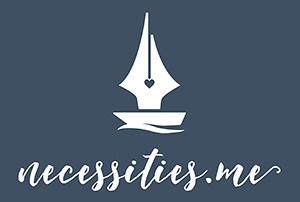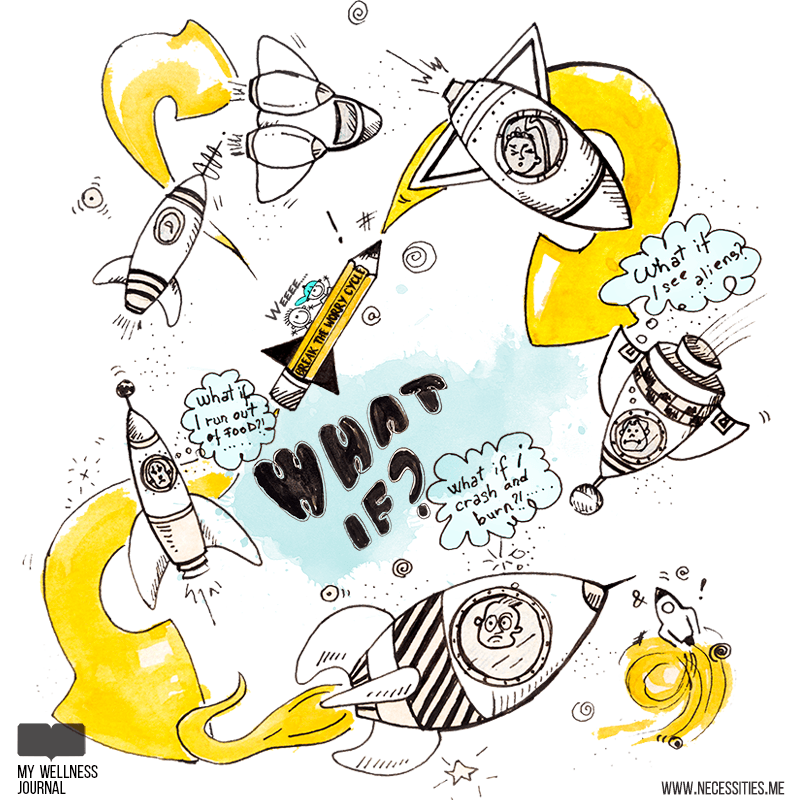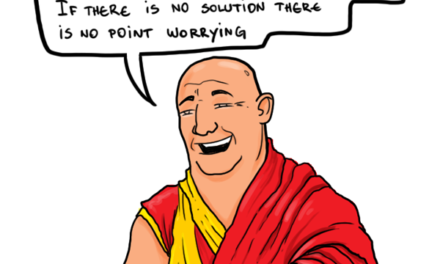What if?
“If you can dream—and not make dreams your master;
If you can think—and not make thoughts your aim;
If you can meet with Triumph and Disaster
And treat those two impostors just the same…”
When I was young, I loved the poem If by Rudyard Kipling. I kept a laminated copy on my dresser. The words uplifted me when life as a thirteen year old seemed rather burdensome. I remember once I was sent to the principal’s office for wearing leather bangles and friendship bands around my wrist. Being a Convent school, there were a LOT of things we weren’t allowed to do.As I sat before Sister Rosina, she had me take off all of my bangles and demanded to see my school bag, in case if I had more tucked away. As she rummaged through my school bag, she found a crumpled piece of paper. It was a letter a boy had sent me some months before.
In emergencies, time seems to slow down. I still remember every detail – the crisp white nun’s habit, her pleated grey skirt, my fluorescent yellow school bag with its contents sprawled across the massive glass-topped mahogany desk. As she read the letter and stared at me through the glasses perched at the tip of her nose, my mind was racing with what ifs. What if she punishes me? What if she tells my parents? What if I get expelled?
Even into adulthood, I’ve observed a lot of ‘what ifs’ race through my mind. The trouble is, our mind generates chemical responses regardless of whether they’re true or not. Have you ever pre-empted a conflict with a partner or work colleague and experienced heightened anxiety or anger as you thought about what you would say? I certainly have!
It can also be provoked when we consider a change in our circumstances or we advance towards a goal. We often find ourselves playing through a variety of ‘what if’ scenarios in our minds. Because we are innately programmed for survival, most of these scenarios are negative.
If you are contemplating change, here are some strategies that help you come out better – rather than bitter – on the other side.
Script your setbacks
Life will never be an unbroken chain of happy, Pollyanna-ish episodes. When we consider change in our lives, there will be times we’ll face setbacks. Using thepositive power of negative preparation, you can acknowledge possible negative scenarios and engineer a plan to overcome them. For example, John Doe is a recovering alcoholic. There are drinks being organised at his workplace on Friday at 5:00pm. What are some things John can do to maintain his sobriety? For a start, he can minimise temptation by starting work early so he can leave early and catch up with his support network that evening instead.
Here is an example – my goal for the day is to walk 10,000 steps but I have a meeting scheduled during my lunch hour. My contingency plan is: When I can’t get out during my usual lunch hour because of a meeting, then I’ll take an early lunch to go for a walk.
Mental contrasting
Caroline Webb is CEO of Sevenshift, a firm that shows people how to use insights from behavioural science to improve their work life. In her book How To Have A Good Day, Caroline describes mental contrasting as “thinking honestly about what’s likely to get in the way of achieving your goals, so you can address those obstacles head on.” This is a technique she refers to as mental contrasting because it involves comparing your ideal outcome with the reality of your day-to-day life. When you are making plans for the day, Caroline proposes you ask yourself:
- What’s most likely to get in the way of you succeeding in meeting your goals today?
- What’s your “when-then” contingency plan to prevent that obstacle from getting in the way?
These are small steps that you can take to ensure that you stay on track and keep progressing towards your goals. If only I knew this when I was thirteen!
How can you apply this technique in My Wellness Journal
Use My Wellness Journal to set your daily work and self-care goals and in the Plans and Reflection section, you can script setbacks and try out “when-then” contingency planning.
- What’s most likely to get in the way of you succeeding in meeting your goals today?
- What’s your “when-then” contingency plan to prevent that obstacle from getting in the way?
Words To Grow By
Erin Hanson
“What if I fall? Oh, but darling, what if you fly?”






